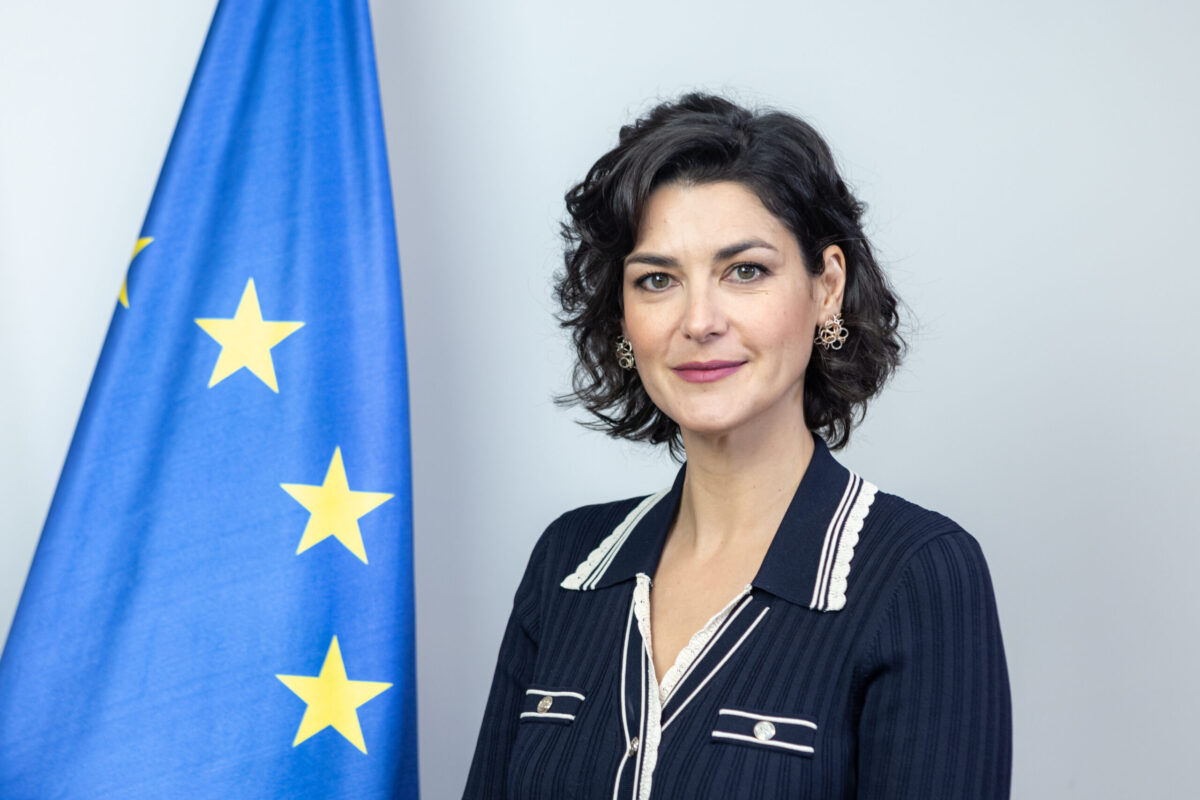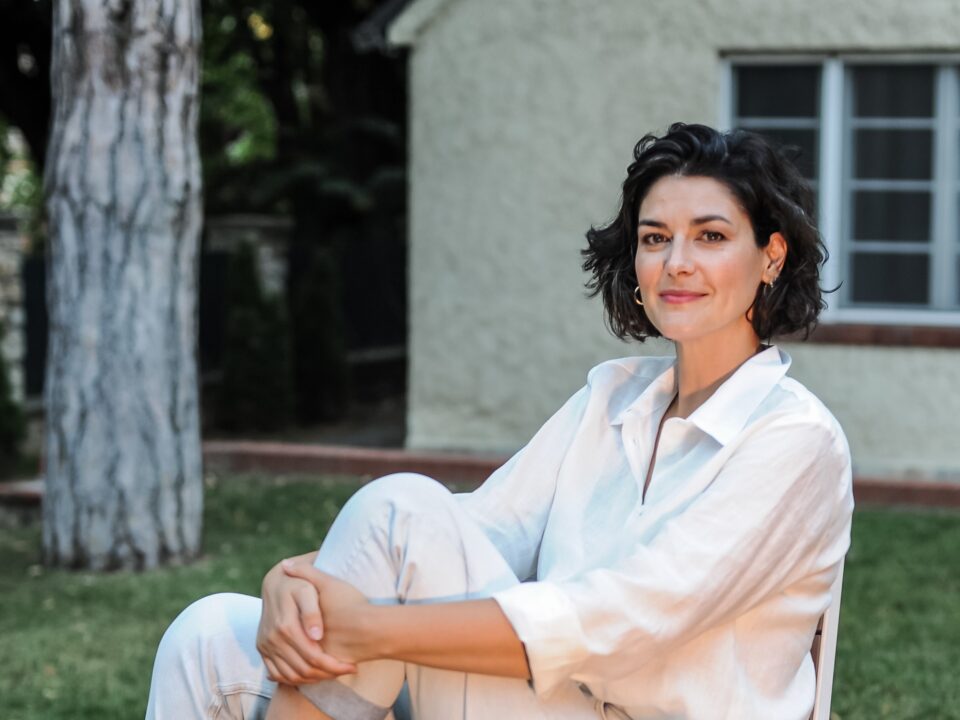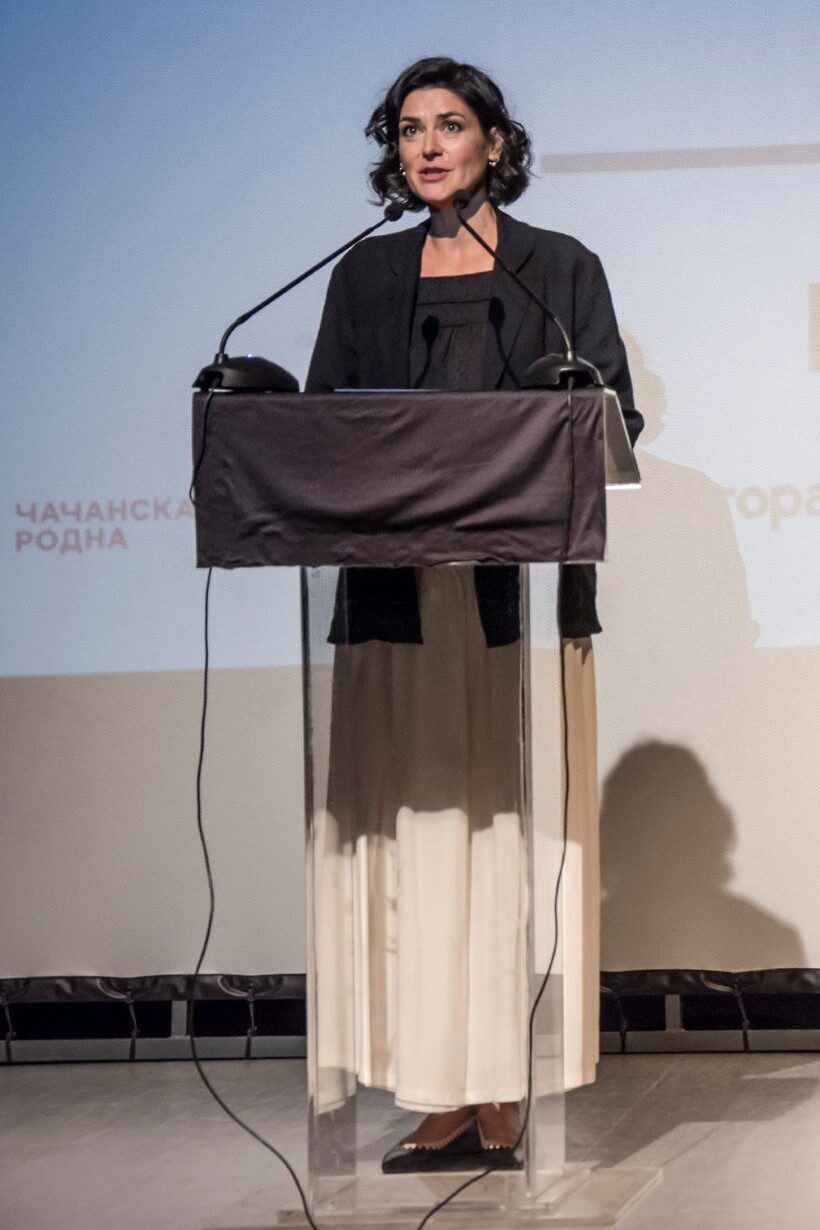We need to talk about the EU beyond the misleading titles that we read in tabloid press
 The EU-Serbia relations have always been a polarizing topic between Serbia and its citizens. This extends to Serbia’s political scene as well, a nation-wide consensus on the right direction of Serbia’s foreign policies is yet to be fully achieved. What has the EU delegation in plan for the upcoming periods, are Serbia’s elections up to European standards and are the concerns of joining the EU legitimate or not? On this and many other pressing topics we talked with Plamena Halacheva, Deputy Head of Delegation of the European Union to Serbia.
The EU-Serbia relations have always been a polarizing topic between Serbia and its citizens. This extends to Serbia’s political scene as well, a nation-wide consensus on the right direction of Serbia’s foreign policies is yet to be fully achieved. What has the EU delegation in plan for the upcoming periods, are Serbia’s elections up to European standards and are the concerns of joining the EU legitimate or not? On this and many other pressing topics we talked with Plamena Halacheva, Deputy Head of Delegation of the European Union to Serbia.
How was 2023 for the EU delegation and its cooperation with Serbia? Have you managed to achieve all the objectives that were set for this year? Which ones were the most important for you and the delegation?
2023 was a challenging year for the EU Delegation and EU-Serbia relations, marked by continuous work on the accession negotiations and reforms, the EU-led Belgrade Pristina Dialogue and even stronger focus on alignment with EU foreign policy, against the background of a difficult geopolitical context. The two tragic mass shootings in early May left us all heartbroken and led to a shift in the reform priorities.
The EU Delegation continued to support Serbia’s reform efforts, notably when it comes to the fundamentals. Some important steps were taken towards strengthening the independence and accountability of the judiciary to ensure the practical effect of the 2022 constitutional amendments, reforming the media legislation and improving the legislative framework for public procurement. However progress in the rule of law was uneven and a lot more remains to be done. The Delegation also continued to advocate for Serbia to accelerate the gas market unbundling, improve competition conditions and take further steps towards the decarbonisation of the economy, in line with Serbia’s commitments, including under the Paris agreement.
The Delegation also accelerated the roll-out of the Economic and Investment Plan through bilateral pre-accession assistance and the WBIF (Western Balkans Investment Framework). The delivery of EUR 165 million budget support aimed at supporting vulnerable families and SMEs, along with the EU-funded works of the gas interconnector with Bulgaria were among the key measures aimed at supporting Serbia during the energy crisis and mitigating some of the consequences of Russia’s aggression against Ukraine. The Delegation further focused on strengthening cooperation with Serbia on the management of illegal migration, building on the progress made by Belgrade in aligning with EU visa policy. Communication and public diplomacy activities remained a key priority for the Delegation, and me personally, to explain the benefits of the accession process and counter disinformation. We took part in over 250 events throughout Serbia this year, ran several campaigns such as We Care (Stalo nam je), European Green Diplomacy, mobility and sports weeks, and for the first time organised EU opportunities week, aimed at raising public awareness about all the opportunities of the EU integration process. You can have a look at our dedicated website https://eumogucnosti.rs/
What does the EU delegation have planned for Serbia in 2024?
Last week, EU Ambassador Giaufret handed over to the Serbian government two key documents: our 2023 Report on Serbia and the Communication on a new Growth plan for the Western Balkans. They contain valuable guidance about the way forward, especially regarding the reforms that need to be accelerated if the country wants to seize the current momentum on EU enlargement. Serbia can continue to count on our support to advance the reform process and its effective implementation to the benefit of its citizens and Serbia’s strategic objective to join the EU.
This is to accelerate next year, thanks to the EU Growth Plan that should provide for increasing integration with the EU’s Single Market in a number of areas such as the free movement of workers or of services where Serbia, as well as other Western Balkan partners, will be able to benefit from the EU Single Market before accession, providing that the necessary reforms are being carried out. We are talking about EUR 6 Billion package for the region proposed by the European Commission that would bring Serbia to a similar level of support intensity per capita as EU Member States that receive EU cohesion funds.
The EU expects Serbia to improve, as a matter of priority, its alignment with EU CFSP, and avoid actions and statements that go against EU foreign policy positions
Elections in Serbia are around the corner. How do you rate the current situation in Serbia regarding the conditions and the atmosphere in which the elections will be held? Would you say that they are up to European standards?
The EU relies on the expertise of OSCE/ODIHR to assess the electoral framework and the conduct of elections. The Serbian authorities have engaged in a dialogue with OSCE/ODIHR, which we encourage them to continue also after the December elections. Indeed, Serbia still needs to address a number of long-standing recommendations concerning key aspects of the electoral process, such as access to media, campaign finance and measures to tackle pressure on voters. The EU would like to see these reforms carried out through a transparent and inclusive process. It is positive that the Law on electronic media adopted last month extended the ban on media coverage of officials who are also candidates taking part in official gatherings organised for the opening of infrastructure or other facilities to 30 days, which is an improvement. It is for OSCE/ODIHR to assess to what extent this will be effectively implemented in practice, as part of its hopefully fully-fledged electoral observation mission. All political and civil society actors are unanimous about the need for such a large-scale OSCE/ODIHR observation mission in view of the current deep political and social polarisation, and the need to enhance public confidence in the electoral process.
 Serbia has yet to align its foreign policies with the EU fully. How has this affected the partnership between Serbia and the EU? What expectations does the EU have from Serbia in this regard?
Serbia has yet to align its foreign policies with the EU fully. How has this affected the partnership between Serbia and the EU? What expectations does the EU have from Serbia in this regard?
Russia’s war of aggression contrary to Ukraine has further underlined the need for unity and solidarity among the EU and its closest partners, and thus the importance of common foreign and security policy (CFSP) alignment in the enlargement process. It is a more significant signal than ever of shared values and strategic orientation. Neighbouring countries like Albania, Montenegro and North Macedonia have maintained a 100% alignment with CFSP, leaving no doubt about their strategic choice of EU accession. When it comes to Serbia, no progress was made in this regard as its alignment patterns remained unchanged, and some of its actions and statements went against EU positions on foreign policy. As reiterated on numerous occasions, the EU expects Serbia to improve, as a matter of priority, its alignment with EU CFSP, and avoid actions and statements that go against EU foreign policy positions.
On a more positive note, Serbia continued to participate in and contribute substantially to EU crisis management missions and operations under the Common Security and Defence Policy, and to cooperate with EU services to prevent circumvention of EU restrictive measures on its territory.
According to the Ministry of European Integration research in December 2022, support for Serbia’s accession to the EU is 43%, while the percentage of those who oppose it is 32%. Could this be improved? What can Serbia do to strengthen the support of its citizens towards the EU-Serbia partnership?
Absolutely! First, we need to talk about the EU more, beyond the misleading and sensationalist titles that we read in tabloid press. Some of the media headlines are pure disinformation like those claiming the EU is about to fall apart or that EU citizens allegedly spent the last winter in the cold and dark. What worries me even more is that we do not talk enough about it – this is in sharp contrast with other countries in the region that I had the pleasure to serve in and where the EU is a daily topic. Here, especially at local level, the EU is – more often than not – a side, back-burner subject, often reduced to the two most divisive angles of sanctions against Russia and Kosovo issue. We need to change this and for this we need the help of all those who want an European future for their children. The Serbian authorities have already in place a wide range of means to engage and explain the EU integration process. While we welcome efforts undertaken, more needs to be done at all levels of governance to counter the anti-EU narratives and disinformation, as underlined once again in our annual report.
More needs to be done at all levels of governance to counter the anti-EU narratives and disinformation, as underlined once again in our annual report
Second, we need to have an informed debate about the opportunities and responsibilities which come with EU membership. The EU Delegation is fully committed to continue informing Serbian citizens about the benefits of the EU accession process, its challenges and the reform efforts it requires. To this aim, we address over 250 events per year, engage with citizens, run web portals, fund films and give regular interviews. We also count on the valuable help of our Member States Ambassadors, who for example recently took part in a wide campaign showcasing EU support to key sectors. We need to all work together to face generation-defining tasks and communicate them well.
Within the same research, respondents expressed the highest percentage of concern regarding the impact of EU membership on our farmers (37%), followed by the fact that membership will mean the loss of our national identity and culture (33%), and that it will cost our country too much money (30%). Are these concerns legitimate or not?
Allow me to dispel these concerns.
First, farmers in Serbia stand to benefit extensively from Serbia’s EU accession and this is clear from the experiences of all 13 countries that joined the EU since 2004. Agriculture and Rural Development are significantly supported at EU level, representing the second largest share of the EU budget. In practice, this means significantly higher, stable and predictable support for the farming community. Beyond the subsidies, there are many other benefits such as direct access to a very receptive EU market for high quality foods, the construction of access roads in rural communities, the promotion of rural tourism, etc. Serbia already benefits from a substantial amount of EU assistance to farmers through our IPARD programme. Since 2000, the European Union has donated EUR 230 million for agriculture and food safety in Serbia, with encouraging results. Serbia’s agricultural exports to the EU quadrupled over the past decade, from EUR 640 million in 2009 to EUR 2.4 billion in 2022.
When it comes to the national identity, are people nowadays any less French than before 1951? I would not say so. I am Bulgarian and, to this day, I write in Cyrillic and speak Bulgarian with family and friends – what has changed is that they are now recognised as one of the official EU languages and alphabets. Being an EU citizen means more, not less. More rights, more freedoms and more opportunities.
Serbia’s agricultural exports to the EU quadrupled over the past decade, from EUR 640 million in 2009 to EUR 2.4 billion in 2022
And when it comes to the cost of EU membership, it is accurate to say that the reform process is not free of charge. Meeting relevant environmental standards for instance comes with a price tag to ensure, among other things, water and air quality, waste management, nature and civil protection. The EU provides significant financial assistance to these sectors, as these have a direct impact on citizens’ lives and health. Speaking of which, according to the latest data from the Republic Statistical Office, citizens of Serbia live, on average, seven years less than EU citizens.
And let us not forget that our history of enlargement has been an unprecedented economic success story, bringing enormous benefits both for those countries which access the EU and the Union itself. You can see that for the new members, their citizens and businesses, there is access to our four freedoms, access to our Single Market, citizens can travel, businesses have new markets. And all of this is a powerful lever to increase prosperity and therefore stability.
You’ve mentioned that what you love most about Serbia and Belgrade is its rich and diverse cultural scene. The EU has proven itself to be an important partner of Serbia in this aspect. What makes this collaboration of European and Serbian cultures special?
Well, Serbian culture is very much European for me. I firmly believe culture is at the core of our Europeanness; it is our common ground and, at the same time, what differentiates us and tells us who we are.
Serbia’s cultural scene has so much to offer and contribute with to our common rich and diverse European cultural space. So indeed, among the things I love the most about Belgrade, and Serbia in general, is the richness of its cultural and artistic scene.
It is no wonder Serbia is one of the most successful users of our Creative Europe programme – our main engine of support for arts, culture and creative industries. Serbia has been participating in this programme since 2014, under the same conditions as EU member states. More than 150 organisations from Serbia have benefited from this programme, with projects worth over EUR 12 million.
